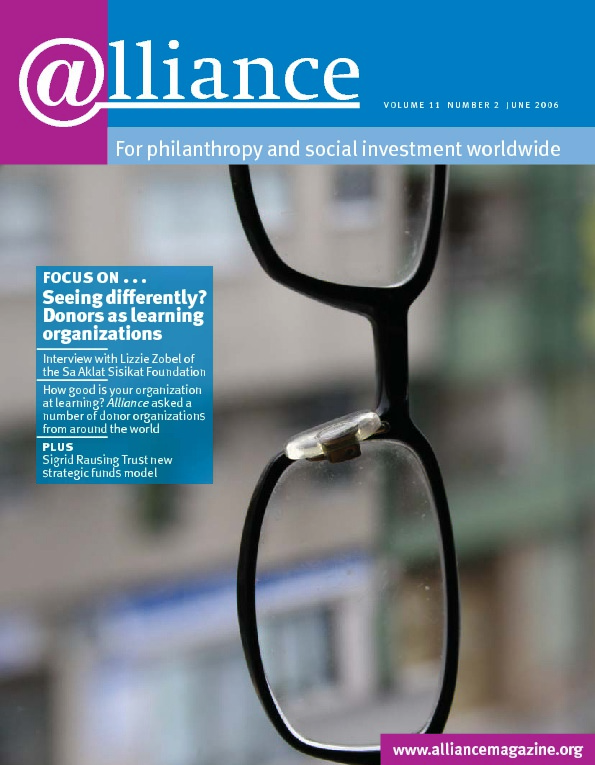In the March 2006 edition of Alliance Andrew Kingman and Jonathan Edwards point readers towards the vexed issue of defining philanthropy. Their concern was triggered, in part, by arguments made in favour of expanding ‘philanthropy’ to include ‘traditional’ modes of help between people (by Connie Ngondi-Houghton in Philanthropy in East Africa).
For these writers, stretching philanthropy’s definitional elasticity or introducing even more conceptual contamination – such as community philanthropy organization (p15, note 1) – further erodes and overshadows potentially more powerful and sustainable forms of people-to-people assistance and routes to social justice. Their alternative advocates for ‘traditions’ of mutual aid, mutual assurance, cooperatives and similar self-organized entities premised on solidarity rather than the rampant individualism propagated by today’s ‘neo-liberal economic orthodoxy’.
In many ways, we are very sympathetic to the line of reasoning and argument put forward by the two authors. Nevertheless, based on our work in the context of southern Africa, we chose a ‘martial arts’ approach to confronting definitional issues. Here, instead of employing a full-frontal alternative framing – such as mutuality and solidarity – the force of dominant discourse is used to counter itself. To shake philanthropy’s governing Anglo-Saxon interpretive pedestal, a non sequitur for a book title, The Poor Philanthropist, and associated notions of ‘horizontal philanthropy’ and ‘philanthropy of community’ are intended to expose and question deeply held assumptions and prejudices embedded in the language and concepts that shape current points of reference, thinking and debate in the field.
Though perhaps not readily apparent, our intentions are similar to those that Kingman and Edwards advance. Our tactic is to argue against the idea that the moral high ground that philanthropy connotes is the sole preserve of the wealthy or better placed. The strategy is to provoke attention to a moral life world of the poor and less fortunate that – in sharing even the very little one has – goes beyond solidarity in its motivation. It more clearly exposes a narrower view of philanthropy for its ‘traditions’ of paternalism and buying off of social justice, which are now at the forefront of reactions championed by leaders such as Emmett Carson.
It is not a fear of mutual ‘aid’ – or, perhaps better said, mutual help – but different perceptions of strategy and tactics.
Susan Wilkinson-Maposa Director, Community Grantmaking and Social Investment programme, University of Cape Town, South Africa
Alan Fowler Research professor and adviser to the project, South Africa


Comments (0)